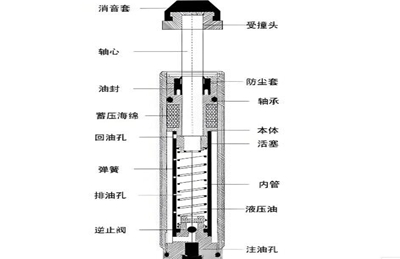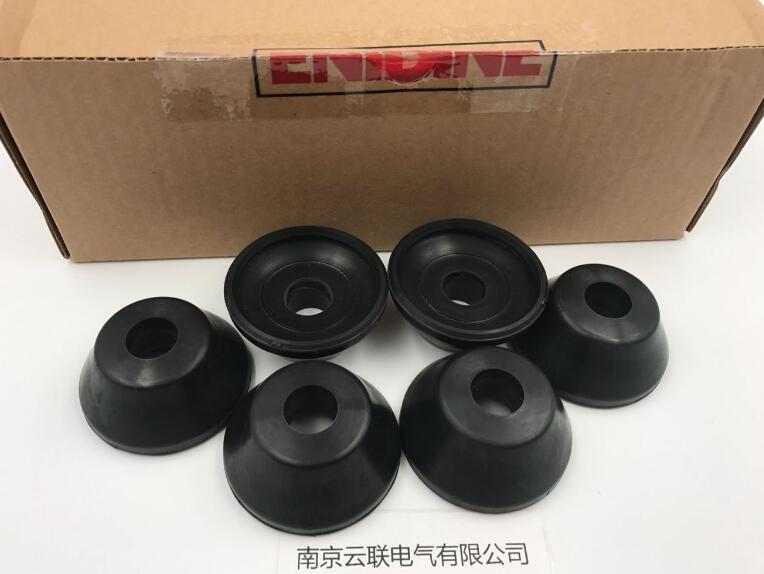Performance characteristics of metal material
buffer silencing cap
Metal material
buffer silencing caps have a wide range of applications in the industrial field, commonly including steel, aluminum, and their alloys.
Firstly, the metal soundproof cap has excellent strength and durability. Taking steel as an example, it can withstand large impact forces and is not easily deformed or damaged during frequent buffering processes. This makes the metal soundproof cap perform well on some high load, high-frequency used buffers, such as buffer devices for large cranes and heavy machinery. Although aluminum alloy silencing caps are slightly weaker than steel in strength, they have the advantage of being lightweight, which is very important for some equipment that requires weight, such as certain buffering devices in the aerospace industry.
Secondly, metal material silencing caps have significant advantages in heat dissipation. During the buffering process, energy is converted into heat, and the good thermal conductivity of the metal can quickly dissipate the heat, avoiding the impact of overheating on the performance or shortening the service life of the soundproof cap. For example, in some high-speed train buffer systems, metal silencing caps can promptly dissipate the heat generated by the buffer into the air, ensuring the stable operation of the buffer.
However, metal material silencing caps also have some shortcomings. Firstly, the sound insulation performance of metals is relatively poor. Although it can reflect and absorb some sound through its own structural design, overall, its barrier effect on mid to high frequency noise is not as good as some specialized sound insulation materials. Secondly, metal soundproof caps are prone to producing collision sounds between metals when impacted, which can increase noise to a certain extent. To improve this issue, it is common to add some rubber or plastic buffer layers on the surface of the metal soundproof cap to reduce collision noise.
In addition, the cost of metal soundproof caps is relatively high, especially for some special alloy materials. Moreover, metals are susceptible to corrosion and require regular anti-corrosion treatment, which also increases the cost of use and maintenance.


